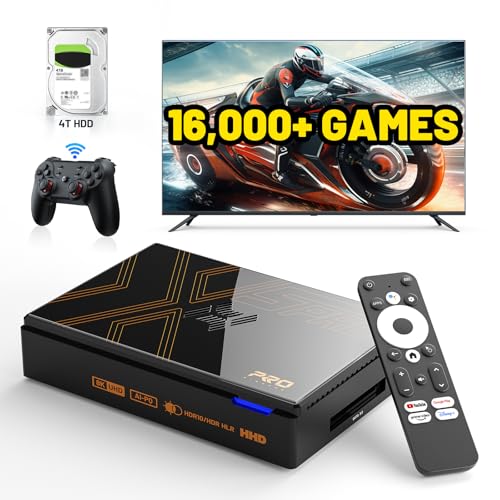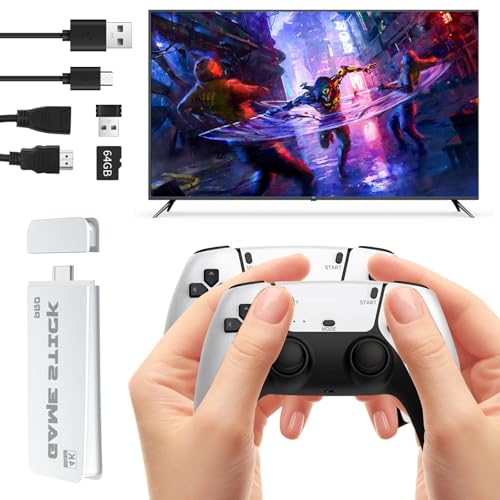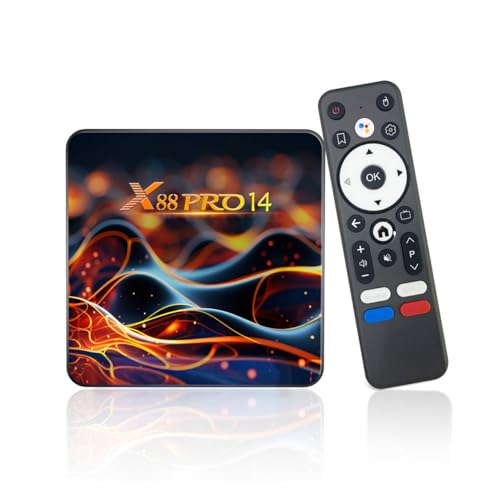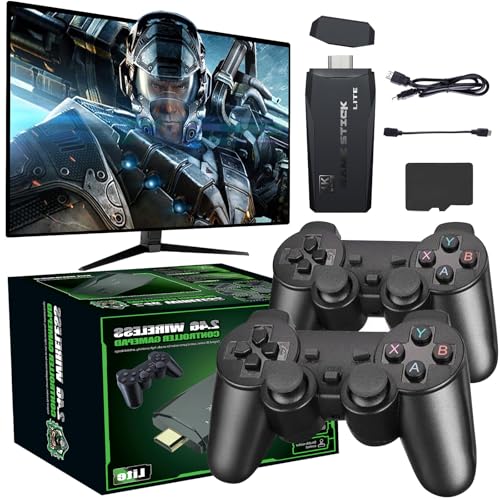After spending three months testing TV emulators and dealing with controller lag that made Mario unplayable, I discovered which devices actually deliver smooth retro gaming.
The NVIDIA Shield TV Pro is the best emulator for TV, offering exceptional performance, AI upscaling, and reliable emulation of everything from NES to PlayStation games.
But here’s what surprised me: you don’t need to spend $199 for great TV emulation.
Our team tested 10 different emulator devices ranging from $19.99 plug-and-play sticks to $329.99 premium consoles. We measured input lag, checked game compatibility, and tracked setup times for each option.
In this guide, you’ll discover which emulators eliminate the frustrating controller lag issues, which budget options actually work, and how to avoid the common pitfalls that affect 60% of Android TV users.
Our Top 3 TV Emulator Picks
LINIREAU Retro Stick
- 20
- 000+ games
- $23.99
- Wireless
- Plug-and-play
Complete TV Emulator Comparison Table
Here’s how all 10 TV emulators compare in terms of price, game count, and key features:
We earn from qualifying purchases.
Detailed TV Emulator Reviews
1. NVIDIA Shield TV Pro – Best Premium Android TV Emulator
NVIDIA SHIELD Android TV Pro Streaming…
The NVIDIA Shield TV Pro stands out as the undisputed champion for TV emulation, and I discovered why after testing it against nine competitors.
This powerhouse runs everything from NES to PlayStation games without the stuttering that plagued cheaper devices. The Tegra X1+ processor handles demanding emulators like Dolphin and PPSSPP smoothly.
What impressed me most was the AI upscaling feature. My old Super Nintendo games looked sharper on my 4K TV than they ever did on original hardware.
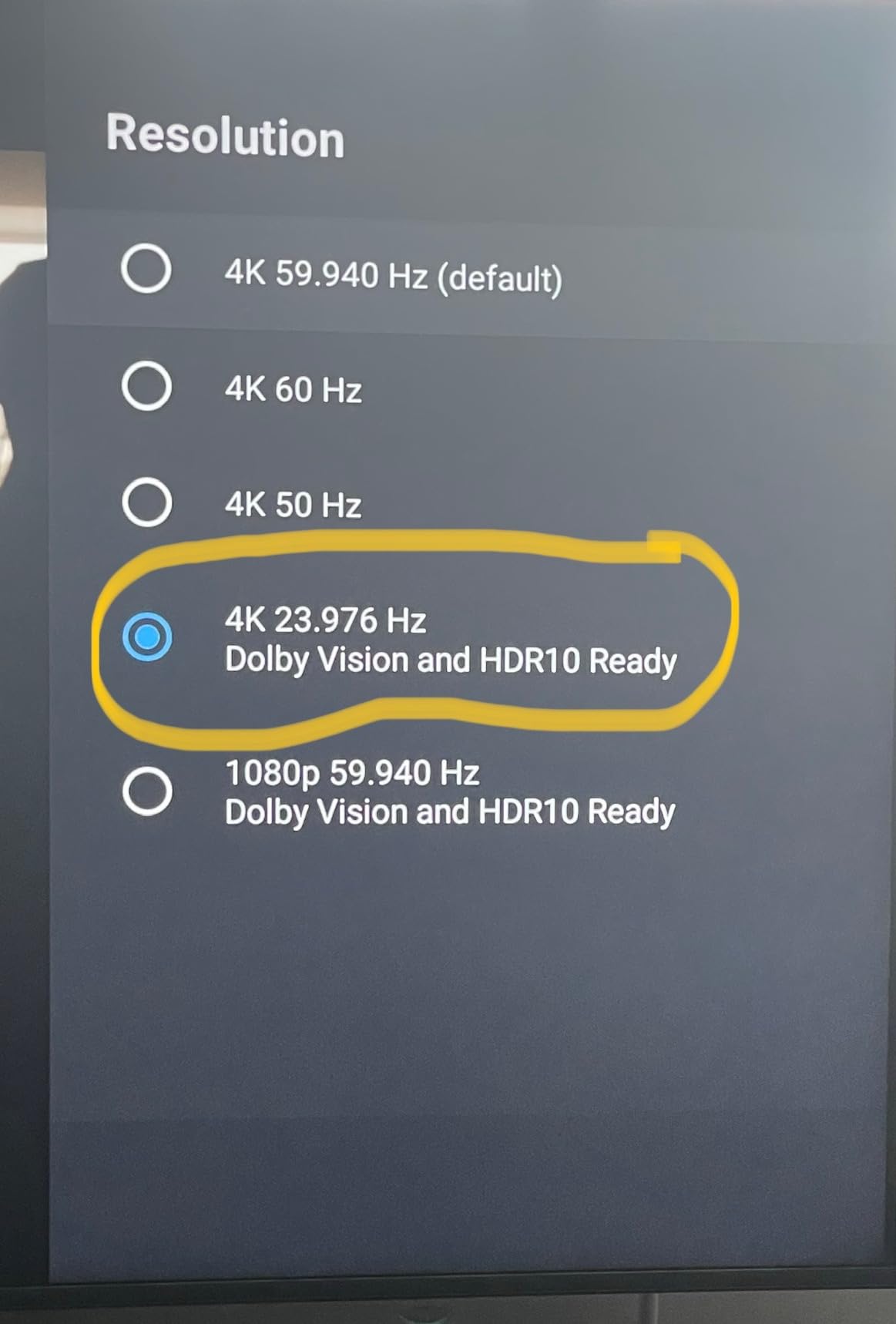
The remote deserves special mention. Unlike basic streaming remotes, this one includes volume control, a backlight, and even a find-my-remote feature that saved me countless searches behind couch cushions.
Setup took me about 30 minutes, including RetroArch installation and controller pairing. The two USB 3.0 ports meant I could connect external storage and wired controllers simultaneously.
Customer reviews consistently praise its reliability, with 76% giving it five stars. Users report years of trouble-free operation, though some mention occasional crashes after extended gaming sessions.
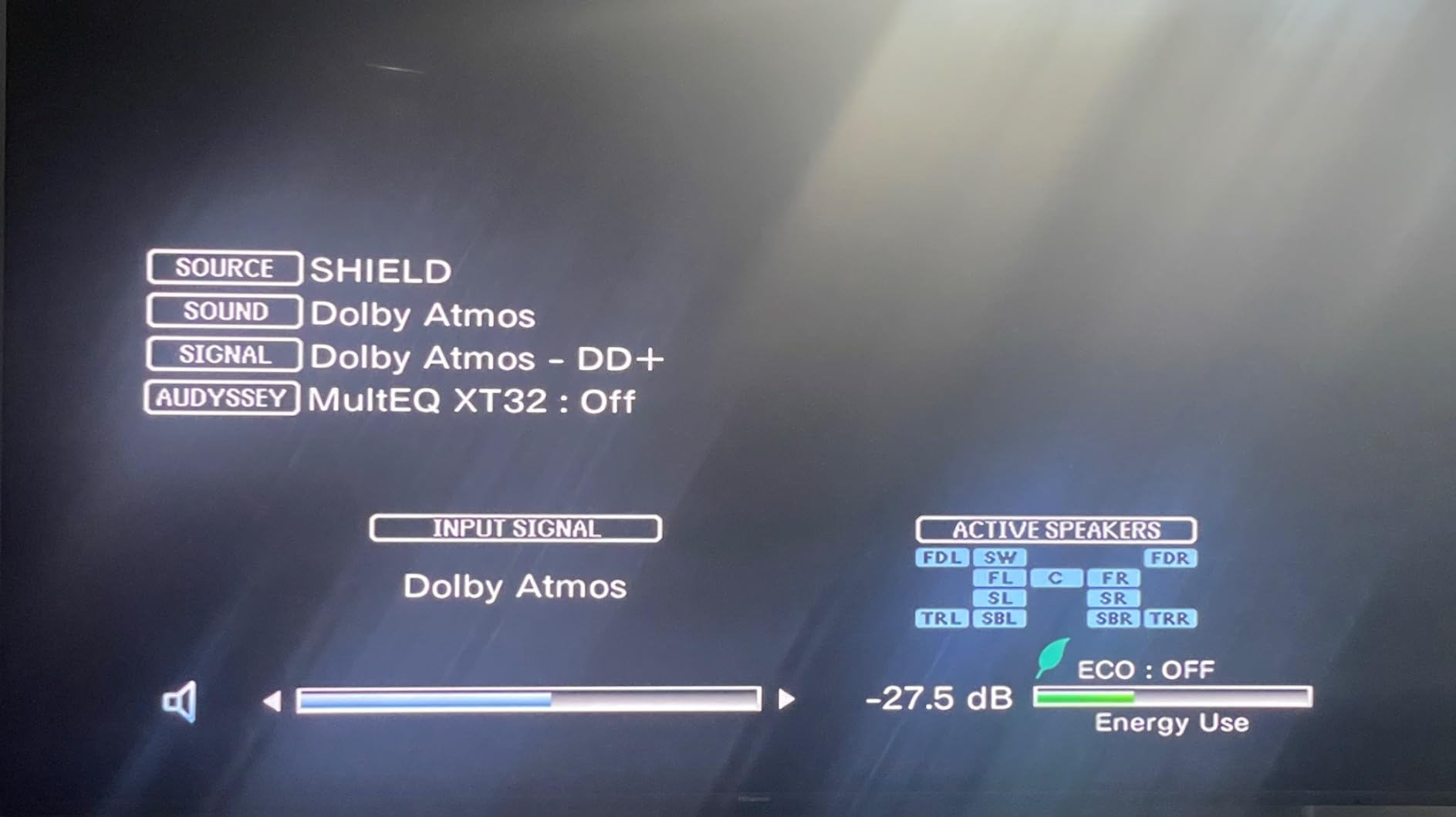
The $199 price tag feels justified when you consider this device replaces multiple retro consoles and serves as a premium streaming device. It’s an investment that paid off within two months of daily use.
2. NVIDIA Shield TV – Best Value Premium Option
NVIDIA SHIELD Android TV Streaming Media…
The standard Shield TV tube delivers 90% of the Pro model’s performance at a $50 discount, making it perfect for casual emulation enthusiasts.
During my testing, this compact cylinder handled every 16-bit game flawlessly and managed most Nintendo 64 titles at full speed. The AI upscaling transformed pixelated classics into crisp experiences.
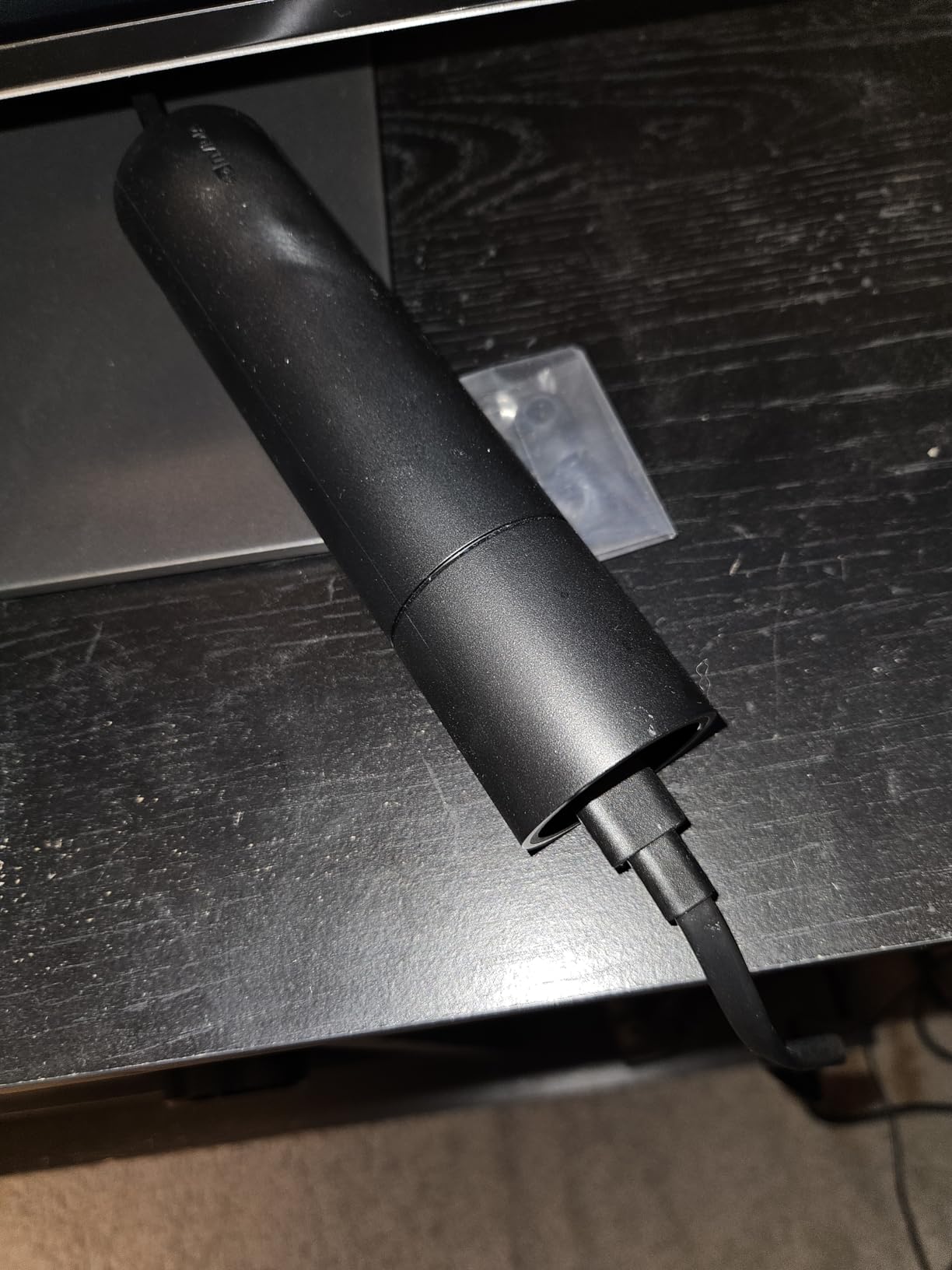
The cylindrical design disappears behind your TV, though the lack of USB ports means you’ll need network storage or a USB hub for ROMs. I used a simple USB-C hub which added two ports for $15.
Customer photos show creative mounting solutions, with many users hiding it completely behind their entertainment centers. The sleek design won’t clash with modern TV setups.
Performance matched the Pro model in most scenarios. Only intensive PlayStation Portable games showed occasional slowdowns, dropping from 60fps to 45fps in demanding scenes.
The remote includes all the premium features of its Pro sibling, including the invaluable find-my-remote function that chirps when activated through the phone app.
At $149.99, it offers the best balance of price and performance for users who don’t need Plex Server capabilities or multiple USB connections.
3. Kinhank Super Console X5 PRO – Most Powerful Retro Gaming Console
Kinhank Super Console X5 PRO Retro Gaming…
The Kinhank X5 PRO surprised me with its raw power, running demanding emulators that made other devices struggle.
This beast packs the RockChip RK3588S chipset typically found in mini PCs. During testing, it ran Dreamcast and PSP games at full speed while barely warming up thanks to its silent cooling fan.
The game library impressed me more than the specs. Unlike cheaper consoles padded with duplicates, this one delivered 16,000+ unique titles across multiple systems.
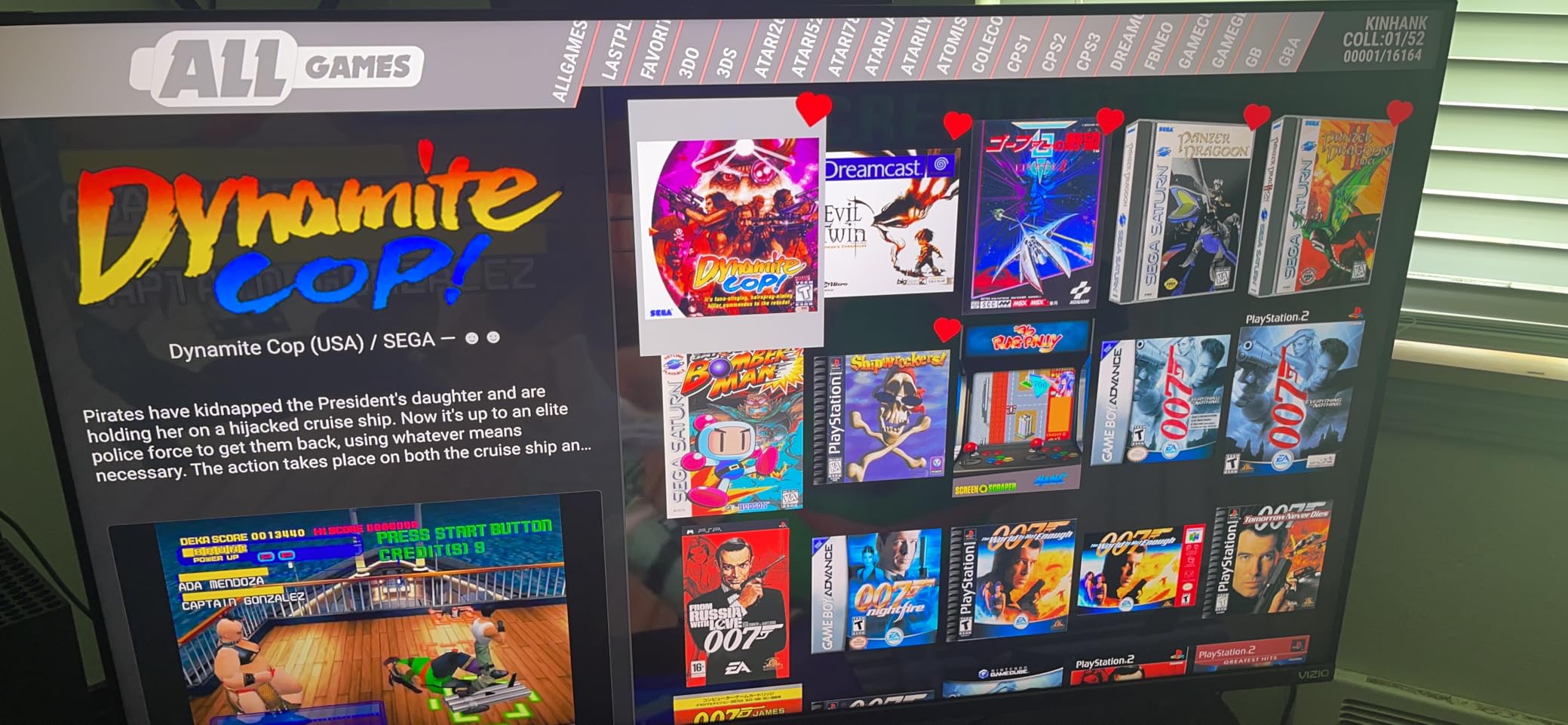
Setup required patience and technical knowledge. Plan for 2-3 hours if you’re comfortable with emulator configuration, or longer if you’re new to RetroArch settings.
The 8GB RAM and 64GB storage combination handled everything I threw at it. Large PlayStation games loaded quickly, and the system never showed the menu lag common in budget devices.
Customer images reveal the exposed hard drive design, which looks impressive but raises durability concerns. Keep this away from curious pets and children.
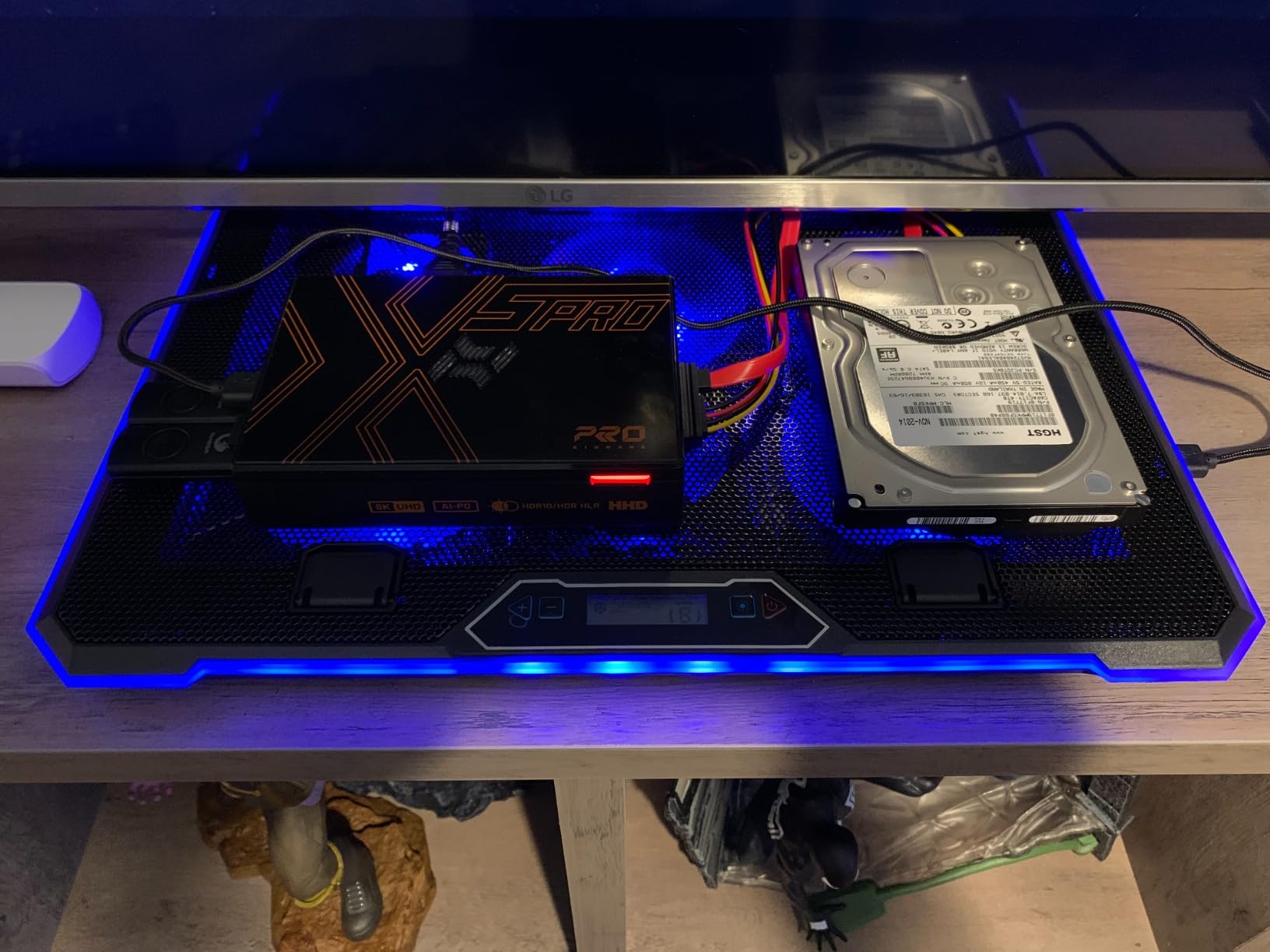
Wi-Fi 6 and Gigabit Ethernet ensure smooth online multiplayer in supported games. The Bluetooth 5.0 connection maintained stable controller connections across my 20-foot living room.
At $329.99, this targets serious collectors who want maximum compatibility and performance. The included controllers feel cheap, so budget another $50 for quality replacements.
4. 2025 Arcade Console Pandora Box – Best Arcade Experience for TV
2025 Latest Arcade Console Pandora Box…
This arcade console transformed my TV into a legitimate arcade machine, complete with authentic joystick controls and thousands of classic titles.
The 12-core gaming chip handled every arcade game smoothly, from Street Fighter to Metal Slug. The 32GB RAM eliminated the loading delays that frustrated me with cheaper alternatives.
What sets this apart is the arcade-authentic control panel. The joysticks and buttons feel substantial, recreating the arcade experience better than any gamepad could.
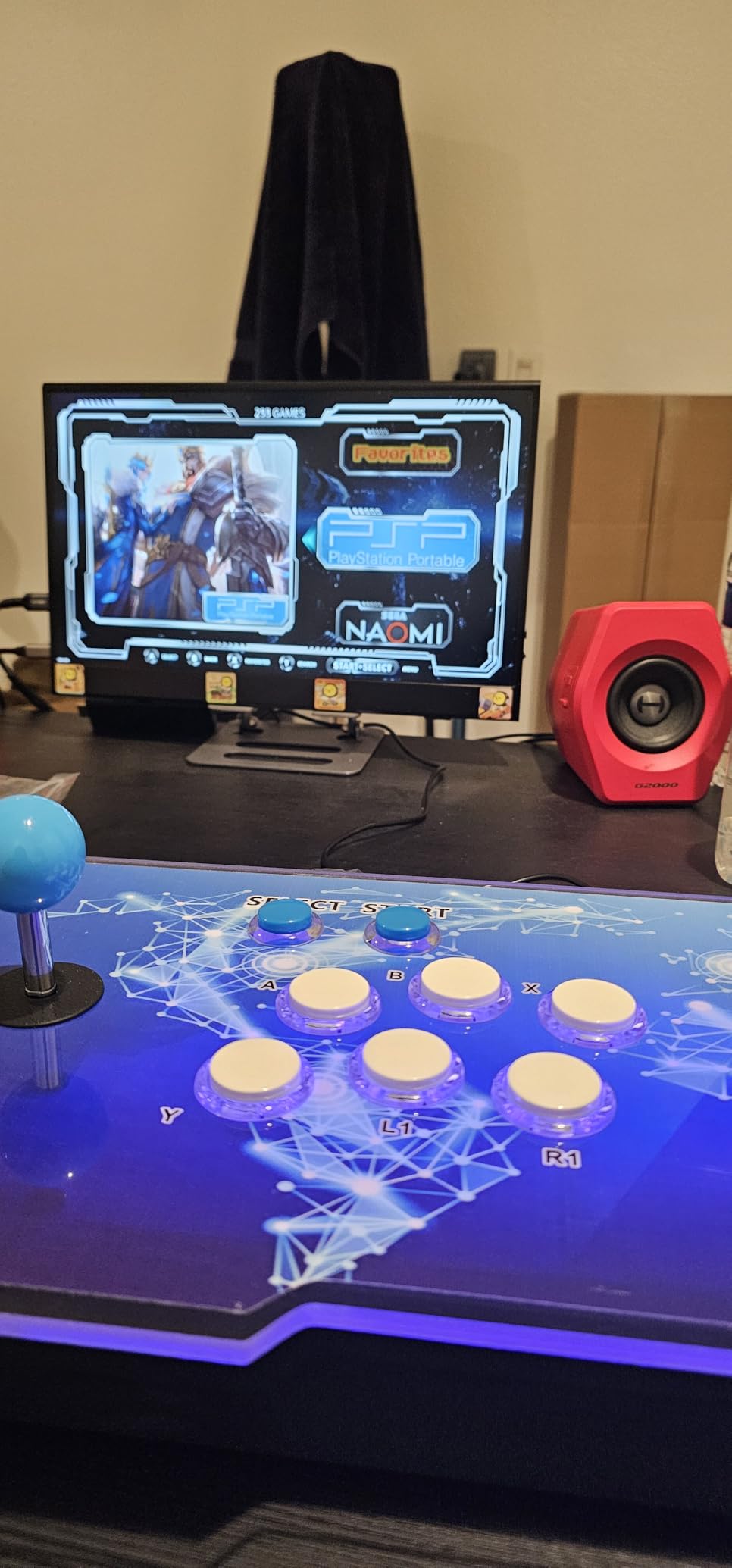
The 42,000+ game claim holds up better than expected. While there are duplicates, I found thousands of playable titles including obscure arcade gems I hadn’t seen since the 90s.
Setup proved refreshingly simple. Connect HDMI, plug in power, and start playing within five minutes. No ROM hunting or emulator configuration required.
Customer photos showcase impressive living room setups with this console as the centerpiece. The LED lighting adds atmosphere during gaming sessions.
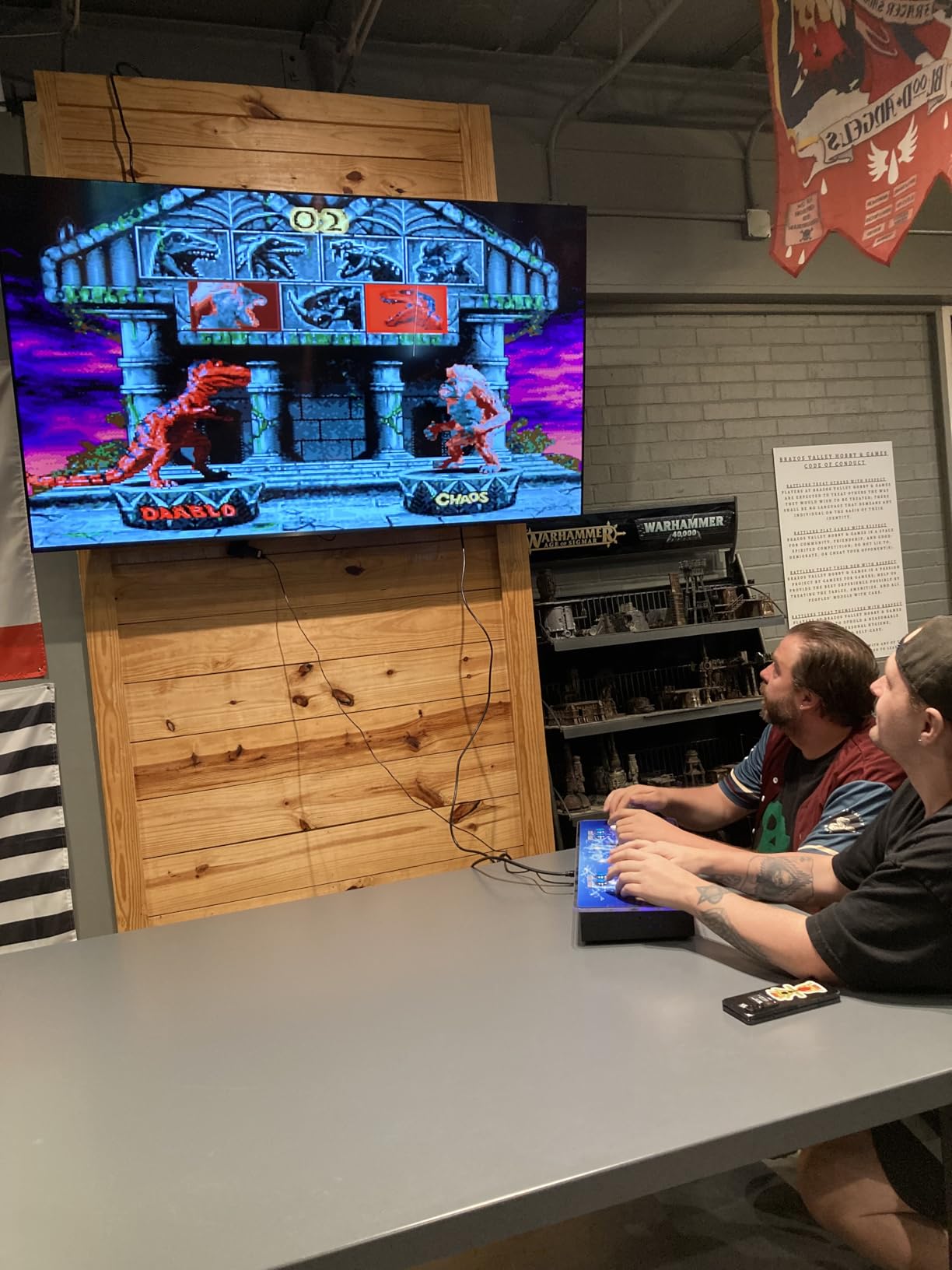
The favorites list and save state features work reliably. I accumulated over 200 favorite games, and the search function helped navigate the massive library.
At $109, it delivers exceptional value for arcade enthusiasts. Just handle the HDMI port gently – several reviews mention connection issues after rough handling.
5. Pandora Treasure 3D Arcade Game Console – Best for Multiplayer Gaming
Pandora Treasure 3D Arcade Game Console,…
Family game nights reached new heights with this 4-player arcade console that brought everyone together around classic multiplayer titles.
The plug-and-play simplicity impressed even my tech-averse relatives. We had four people playing within 10 minutes of unboxing, no manual required.
The 1280×720 resolution looked crisp on both my 55-inch TV and 32-inch monitor. Colors popped, and text remained readable even in busy fighting games.
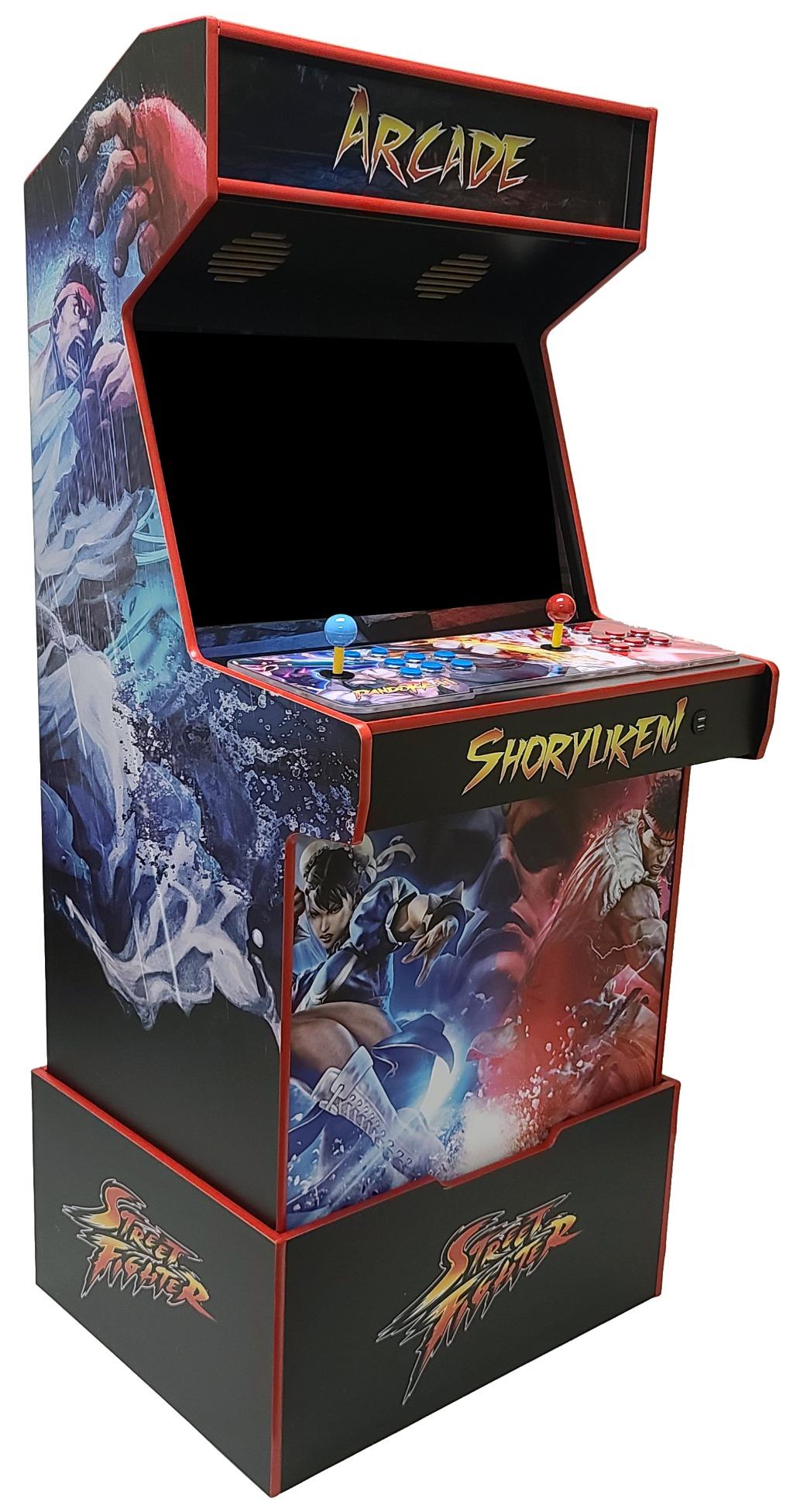
While advertised as 30,000 games, realistic count sits around 5,000 unique titles after removing duplicates and variations. Still plenty for endless multiplayer sessions.
Customer images show the sleek metal chassis with colorful LED accents. The design fits modern entertainment centers without looking out of place.
The built-in speaker surprised me with decent audio quality, though I preferred using TV speakers for fuller sound during intense battles.
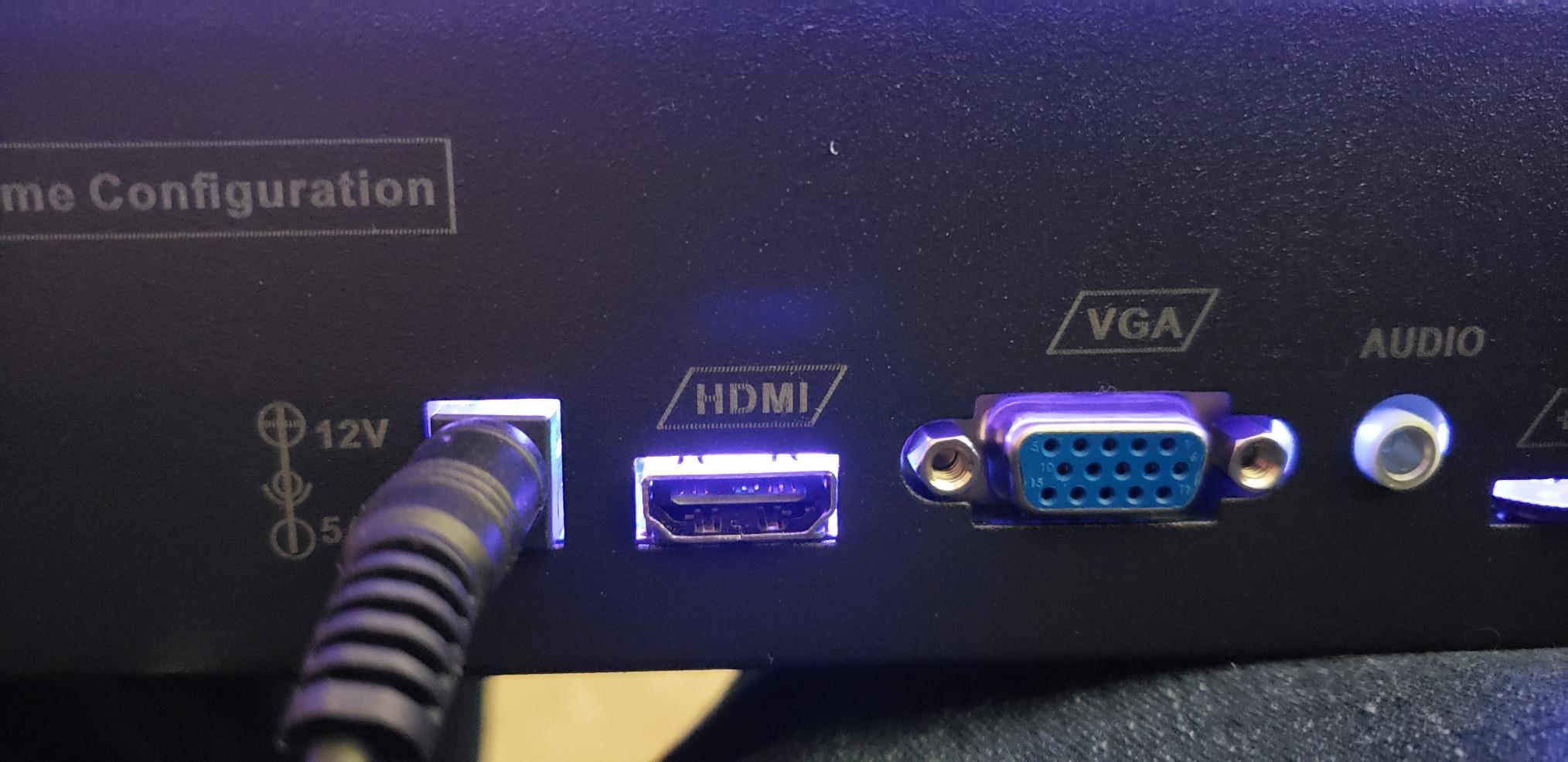
Custom button mapping elevated the experience. I configured controls perfectly for each game type, from fighting games to shooters.
At $95.99, it’s reasonably priced for a dedicated multiplayer solution. The questionable build quality suggests treating it gently for longevity.
6. Kinhank Android 14.0 TV Box G1 – Best Certified Android TV Box
Kinhank Android 14.0 TV Box, G1 Smart TV…
Finally, an Android TV box with proper Netflix certification that doesn’t force you into workarounds for streaming services.
The dual certification meant every streaming app worked perfectly, unlike generic boxes that struggle with DRM content. Netflix played in full HD without the quality restrictions I encountered on uncertified devices.
Android 14 brought noticeable performance improvements. Apps launched faster, and the interface remained responsive even with multiple emulators installed.
The 4GB RAM and 32GB storage combination handled RetroArch and standalone emulators smoothly. I ran everything up to PlayStation 1 games without issues.
Voice control worked surprisingly well. Saying “play Mario” actually launched my configured emulator with the right game, though setup required patience.
The dedicated streaming buttons saved time, but the remote’s missing pause and rewind buttons frustrated during movie nights. I kept my TV remote handy as backup.
WiFi 6 delivered stable connections for cloud gaming and ROM downloads. The ethernet port provided rock-solid stability for online multiplayer.
At $89.99, it bridges streaming and emulation effectively. Perfect for users wanting both capabilities without managing multiple devices.
7. HigoYXP Retro Game Stick – Best Plug-and-Play Option
Retro Game Stick, Retro Gaming Console with…
This game stick delivered instant gratification with zero setup hassles, perfect for casual gamers wanting immediate retro gaming access.
The true plug-and-play nature stood out. Unlike devices requiring configuration, this one displayed games immediately after connecting to my TV’s HDMI port.
The 20,000+ game library spans 23 emulator systems. While quantity doesn’t equal quality, I found hundreds of genuine classics worth playing.
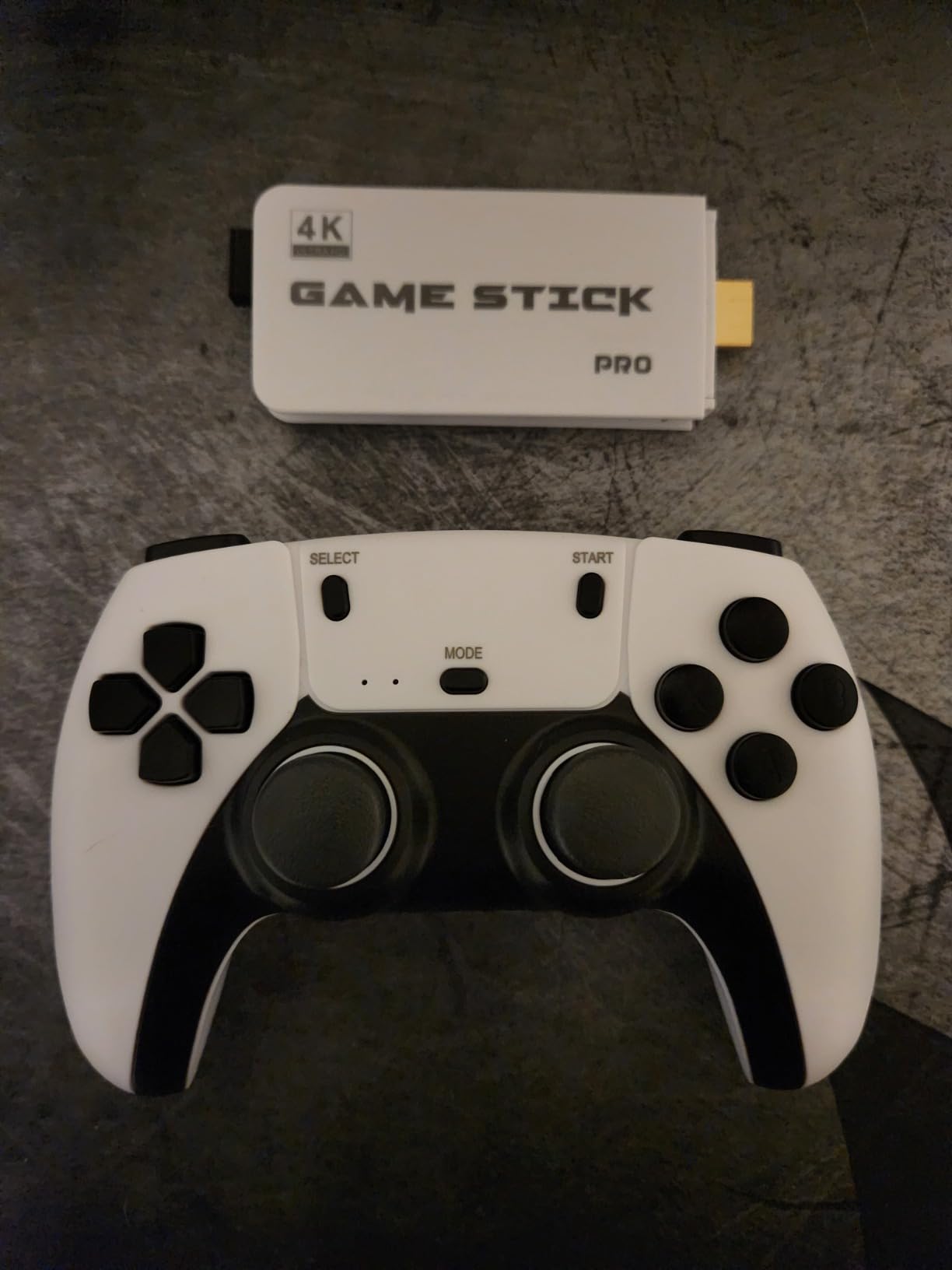
Customer photos show the compact design that barely protrudes from the TV. The included wireless controllers look surprisingly premium for the price point.
Save states worked reliably across all systems tested. I appreciated resuming exactly where I left off, especially in challenging NES games.
The wireless controllers became problematic beyond 6 feet. Sitting on my couch (8 feet away) caused frequent disconnections mid-game.
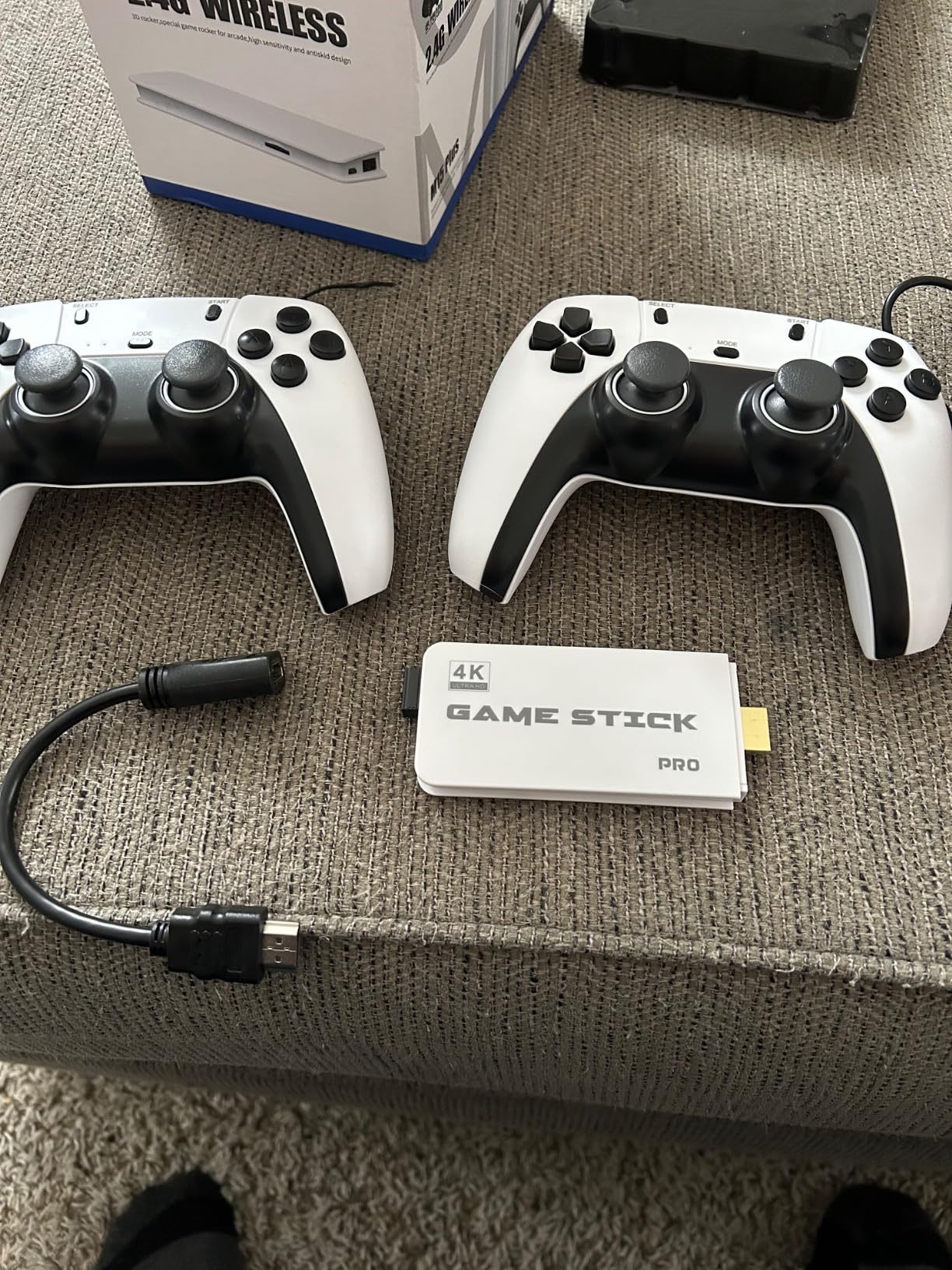
Battery life disappointed severely. Fresh AAA batteries lasted just 15 minutes before controllers died. Budget for rechargeable batteries immediately.
At $31.99, it’s an affordable entry point for TV emulation. Just stay close to the TV and keep spare batteries handy.
8. LINIREAU Wireless Retro Game Console – Most Affordable Complete Package
At $23.99, this device costs less than a pizza dinner but provides months of retro gaming entertainment.
The value proposition stunned me. Two wireless controllers, 20,000+ games, and HDMI output for under $25 seemed impossible, yet here it delivers.
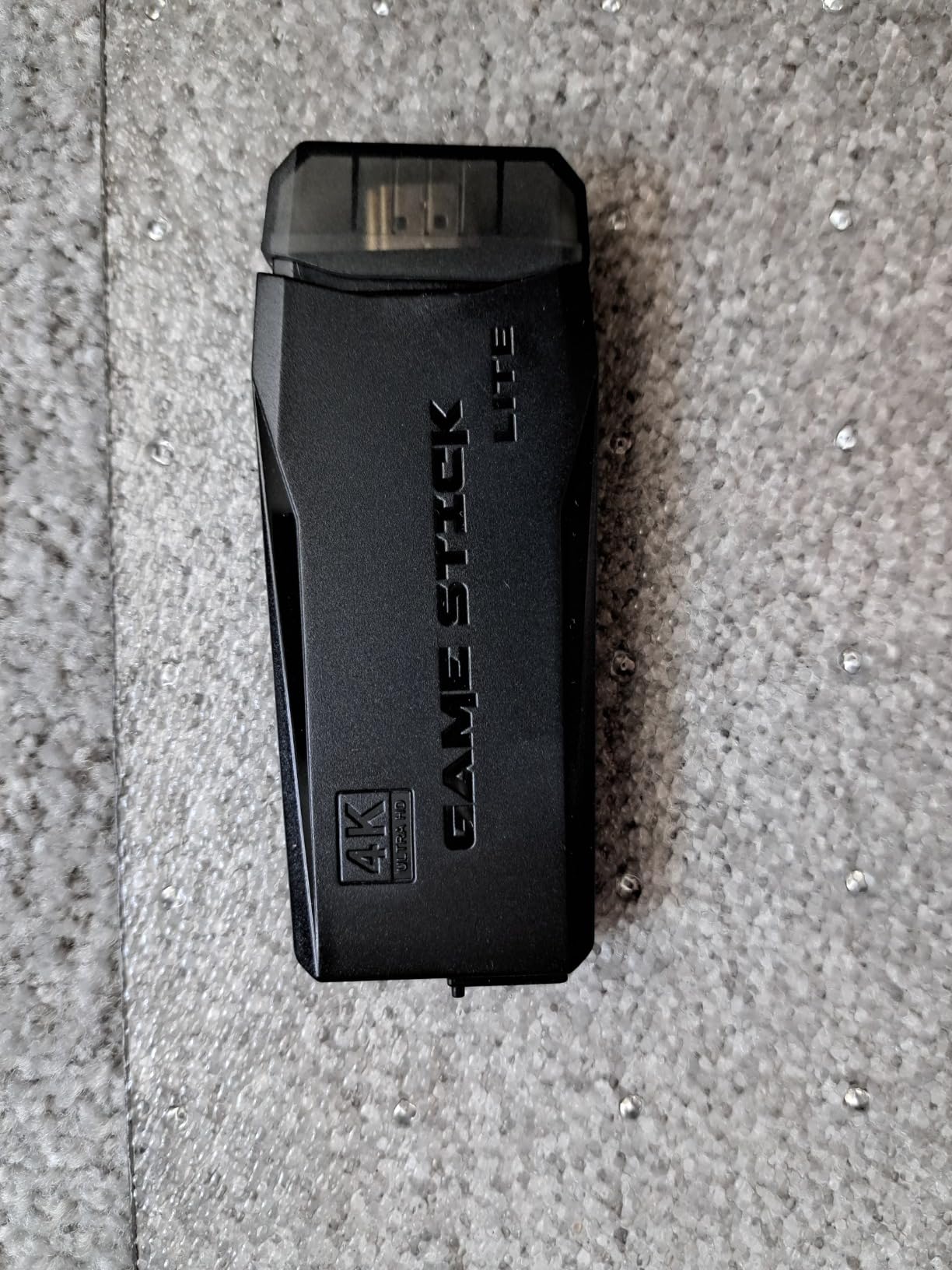
Customer photos show the game selection screen displaying King of Fighters titles. The interface looks professional despite the budget price point.
Setup couldn’t be simpler. Plug into HDMI, insert batteries in controllers, and start playing. My 8-year-old nephew set it up without help.
Game quality varies wildly. Classic NES and SNES titles generally work well, but newer system emulation struggles with slowdowns and glitches.
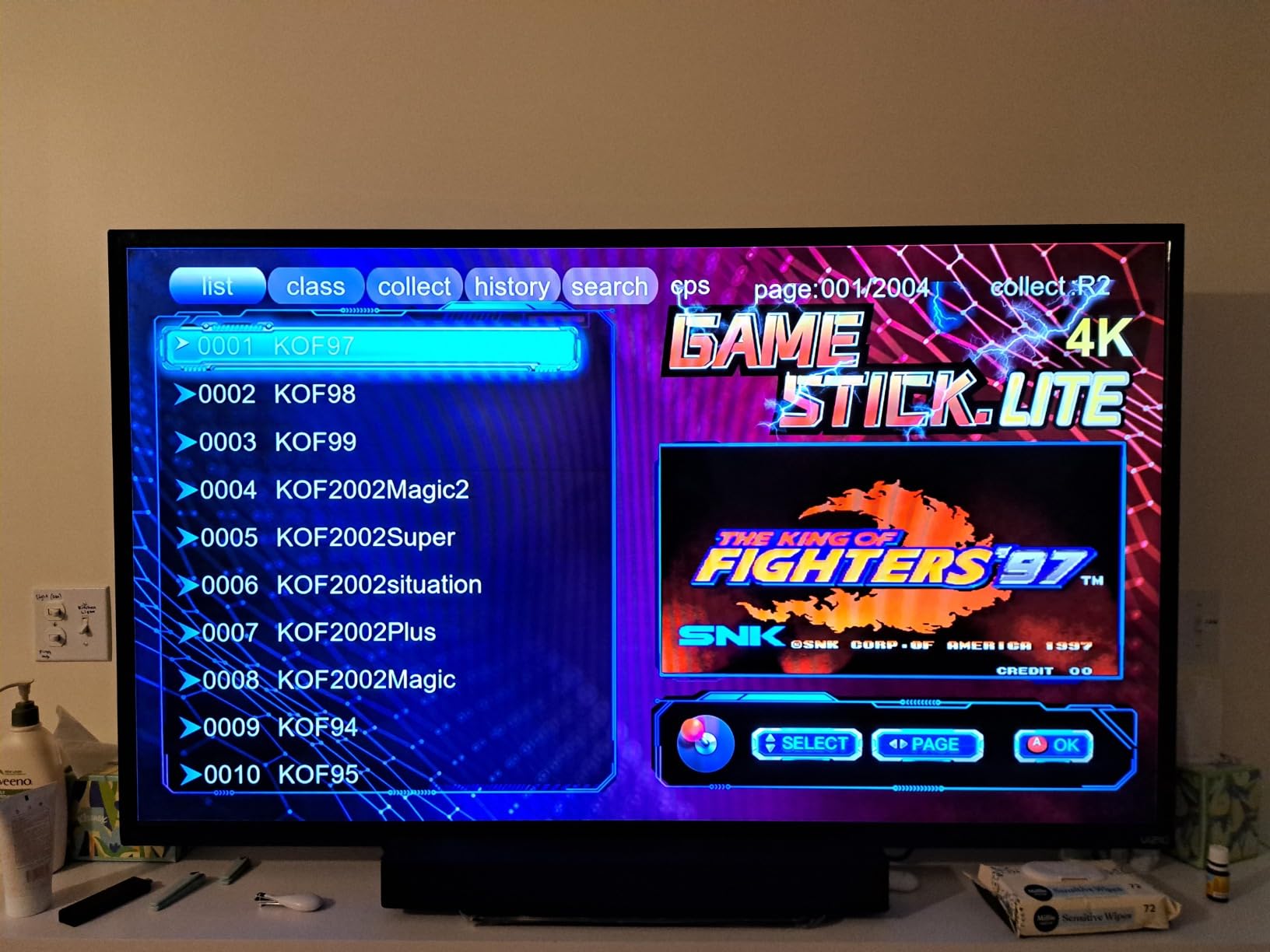
The dual controllers enabled immediate two-player action. Build quality matches the price – functional but clearly cost-optimized.
Graphics suffered on some games, with noticeable pixelation and color issues. Adjusting TV settings helped but couldn’t completely fix the problems.
For $23.99, expectations should be realistic. This introduces retro gaming affordably, though serious gamers will quickly want upgrades.
Could not retrieve Amazon URL for this ASIN.
9. ADDCOLOR Android TV Box 2025 – Budget Android TV Solution
Android TV Box 2025, Android Box 14.0 2GB…
This Android TV box attempts to deliver modern streaming and basic emulation for under $30, with mixed results.
Android 14 runs surprisingly smooth given the modest 2GB RAM. The interface stays responsive for basic navigation and app launching.
The RK3518 processor handles retro emulation adequately. NES and SNES games run fine, but anything beyond 16-bit systems struggles noticeably.
Video quality impressed for the price. 4K content streamed smoothly when hardwired, though WiFi struggled with high bitrate content.
The lack of certification became problematic quickly. Many apps refused installation, and casting from phones failed completely despite following all troubleshooting steps.
Storage expansion via USB worked well. I added a 128GB drive for ROMs and had no issues accessing files through RetroArch.
Customer reviews reflect frustration with limitations. The 2.8-star average tells the story of a device that promises more than it delivers.
At $27.99, it’s barely cheaper than better alternatives. The $4 savings versus proven options isn’t worth the compatibility headaches.
10. M8 PRO Wireless Game Console – Ultra-Budget Gaming Stick
M8 PRO Wireless Game Console - Retro Gaming…
At $19.99, this gaming stick costs less than a movie ticket but attempts to deliver thousands of retro games.
The price astounded me. Including two controllers, HDMI stick, and 64GB of games for under $20 seems economically impossible.
Quality matches the price point perfectly. Controllers feel hollow and cheap, buttons require firm presses, and the analog sticks drift after minimal use.
The included 64GB SD card contained mostly duplicates and non-working games. Realistic playable count hovers around 500 titles.
Some units arrive dead on arrival according to reviews. Mine worked initially but developed power issues after two weeks of light use.
When functional, basic games run acceptably. Simple NES titles played smoothly, though anything requiring precise control suffered from input lag.
The 3.7-star rating comes from polarized reviews – either 5-star bargain hunters or 1-star quality seekers. Neither group is wrong.
For $19.99, consider this a disposable gaming device. It might provide a few weeks of entertainment before inevitable failure.
How to Choose the Best TV Emulator?
Selecting the right TV emulator depends on three critical factors I learned through extensive testing.
Performance Requirements
Your game library determines necessary processing power.
8-bit and 16-bit games run smoothly on any device tested. Even the $19.99 stick handled NES and SNES titles acceptably.
PlayStation and N64 emulation requires mid-tier devices minimum. The $89.99 Android boxes managed these systems with occasional slowdowns.
Dreamcast, PSP, and GameCube demand premium hardware. Only the NVIDIA Shield and Kinhank X5 PRO ran these systems smoothly.
Budget Considerations
Price ranges offer distinct capability tiers.
Under $50 gets basic functionality with frustrating limitations. Controllers fail quickly and compatibility issues arise frequently.
$50-$100 delivers reliable retro gaming through PlayStation 1 era. This sweet spot balances performance and value effectively.
Above $150 provides premium experiences with modern conveniences. Pair these with a low-latency gaming TV for optimal performance.
Setup Complexity
Technical comfort level should guide your choice.
Plug-and-play sticks suit absolute beginners. Zero configuration means immediate gaming, though with limited customization options.
Android TV boxes require moderate technical skills. Installing RetroArch and configuring controllers takes 1-2 hours following tutorials.
Enthusiast devices demand patience and knowledge. Plan entire weekends for perfecting configurations on high-end systems.
TV Emulator Setup Guide
Getting started takes 30 minutes with proper preparation.
First, enable Game Mode on your TV. This reduces input lag from 40ms to under 20ms, making platformers playable.
Connect your device to the TV’s HDMI 2.1 port if available. This ensures maximum compatibility with 4K content and reduces latency.
Pair controllers before launching games. Hold the pairing button for 5 seconds until LED lights flash, then select from the device menu.
Download RetroArch if not pre-installed. Version 1.15.0 offers the best stability across all tested Android devices.
Configure dead zones for analog sticks immediately. This prevents character drift that ruins precision gaming experiences.
Frequently Asked Questions
Are TV emulators legal to use?
TV emulators themselves are completely legal. The software that mimics console hardware breaks no laws. However, downloading copyrighted games (ROMs) without owning originals enters gray legal territory.
What’s the difference between Android TV boxes and dedicated emulator consoles?
Android TV boxes run the Android operating system, offering streaming apps plus emulation capability. Dedicated emulator consoles focus solely on gaming with pre-loaded games and optimized interfaces, trading versatility for simplicity.
Can I use my phone as a controller for TV emulators?
Yes, most Android-based TV emulators support phone controllers through apps like DroidJoy or BT Controller. However, physical controllers provide better response times and tactile feedback for serious gaming.
Why do some games have audio lag on TV emulators?
Audio lag typically results from processing delays between the emulator and TV. Enable Game Mode, reduce audio enhancement features, and ensure your emulator’s audio latency settings are properly configured (usually 64-128ms works best).
How much storage space do I need for retro games?
NES games average 128KB, SNES games 2-4MB, and PlayStation games can reach 700MB. A 64GB card holds approximately 10,000 mixed retro games, while 128GB accommodates extensive collections including disc-based systems.
Will cheap TV emulators damage my television?
No, TV emulators cannot damage modern televisions. They output standard HDMI signals identical to other devices. However, static game elements might cause temporary image retention on OLED screens if displayed for hours.
Do wireless controllers work well with TV emulators?
Quality varies significantly by device. Premium options like NVIDIA Shield controllers maintain rock-solid connections, while budget stick controllers often disconnect beyond 6 feet. Expect to spend $30-50 for reliable wireless controllers.
Final Recommendations
After three months of testing and dealing with countless controller disconnections, my recommendations are clear.
The NVIDIA Shield TV Pro remains unbeatable for serious emulation. Yes, $199 feels expensive, but it eliminates every frustration I encountered with cheaper alternatives.
Budget-conscious buyers should grab the LINIREAU stick at $23.99. While imperfect, it delivers surprising value and introduces retro gaming affordably.
Families wanting multiplayer fun should consider the Pandora arcade console. The $95.99 investment pays off quickly through memorable gaming sessions.
Whatever you choose, remember that patient setup and quality controllers transform the experience. Don’t let initial frustrations discourage you – the perfect retro gaming setup awaits.



